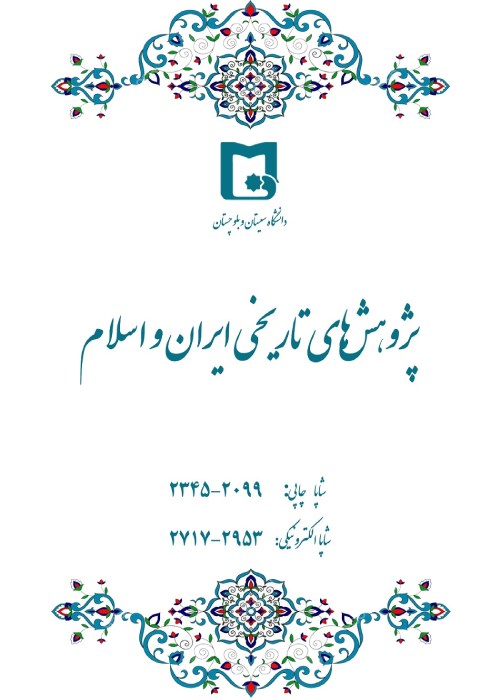Attitudes of the sources of the first Islamic Centuries towards the Kuch people (Qofs)
From the beginning of the Islamic period to the seventh century, Tribe of Kuch (Qofs) played a pivotal role in Jiroft in the political, economic, military and cultural fields. During this period, the historical and geographical sources of Iran have paid special attention to the role of this people and their characteristics and introduced them as a violent and bandit people. For this reason, the present study has discussed the dominant theory of the Qofs people and by re-reading the reports of the sources of the first Islamic centuries, with a descriptive-analytical method and library books, seeks an answer to the question: why historical and geographical sources of the time often had a negative attitude towards violence and robbery towards the Kuch people?By studying the historical and geographical sources and testing the hypothesis that in the historical and geographical sources of the first Islamic centuries there is a one-sided and governmental view of society and Tribe of Kuch (Qofs), it was concluded that between two types of external and internal views of Tribe of Kuch (Qofs) made a distinction. The external view reflected in the sources considers the Kuch people to have characteristics such as rebellion, robbery and violence. This view of the Kuch people has been reflected in sources since the Ale-Buyeh era. From the second point of view, Kuch people can be examined from within their community and in empathetic ways. According to this view, Kuch people in the ethnic and racial debate had the characteristics of tribal life based on the spirit of individualism and independence and did not submit to obedience to governments. In addition, they did not pay taxes and were religiously at odds with the official and state religion. Hence, they were introduced by the opposition as a rebellious, violent and bandit ethnic group, and this attitude was reflected in the sources.
- حق عضویت دریافتی صرف حمایت از نشریات عضو و نگهداری، تکمیل و توسعه مگیران میشود.
- پرداخت حق اشتراک و دانلود مقالات اجازه بازنشر آن در سایر رسانههای چاپی و دیجیتال را به کاربر نمیدهد.



